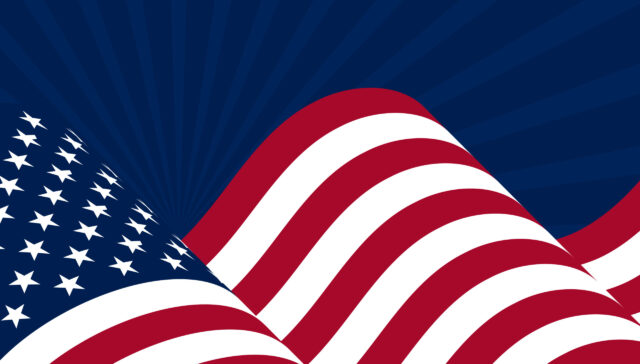
O-1A Visa
What is O-1A Visa?
The O-1A visa is specifically for individuals who have demonstrated extraordinary ability in the fields of sciences, education, business, or athletics.
The defining characteristic of the O-1A visa is the high standard required. Eligibility hinges on demonstrating a "level of expertise indicating that the individual is one of the small percentage who has risen to the very top of their field". This standard applies specifically to those in science, education, business, and athletics.
O-1A Visa Requirements
The central requirement is demonstrating "extraordinary ability," defined as a level of expertise indicating the individual is among the "small percentage who have arisen to the very top of the field of endeavor".
Proving Extraordinary Ability
Petitioners must demonstrate eligibility through one of the following methods :
-
Major Internationally Recognized Award: Evidence of receiving a single, major award recognized internationally for outstanding achievement, such as a Nobel Prize.
OR
- Meeting at Least Three Criteria: Providing documentation satisfying at least three of the following eight criteria:
- Receipt of lesser nationally/internationally recognized prizes/awards for excellence.
- Membership in associations demanding outstanding achievement (judged by experts).
- Significant published material about the individual in professional/major trade publications or other major media.
- Participation as a judge of others’ work (individually or on a panel).
- Original scientific, scholarly, or business-related contributions of major significance.
- Authorship of scholarly articles in professional journals or other major media.
- Performance in a critical or essential role for distinguished organizations.
- Commanding (or will command) a high salary or other high remuneration compared to others in the field.
If the standard criteria don’t readily apply, petitioners may submit “comparable evidence,” explaining why the standard criteria are unsuitable and how the alternative evidence meets the requirement.
O-1A vs. O-1B: Key Differences
Eligible Fields
- O-1A: Sciences, Education, Business, Athletics.
- O-1B: Arts, Motion Picture Industry, Television Industry.
Criteria Standards
- O-1A: Requires “Extraordinary Ability” (very top of the field).
- O-1B:
- Arts: “Extraordinary Ability” meaning distinction (prominent, renowned, leading, well-known).
- MP/TV: “Extraordinary Achievement” (outstanding, notable, leading).
From O-1A Visa to Green Card
O-1A is a temporary, nonimmigrant visa. It does not automatically lead to a Green Card. However, O-1 status is generally compatible with “dual intent,” allowing pursuit of permanent residency simultaneously.
The EB-1A immigrant visa (Green Card) category also recognizes extraordinary ability and is a common pathway for O-1A holders.
- Eligibility: Criteria mirror O-1A but are often applied more stringently.
- O-1A Approval Relevance: Prior O-1A approval is relevant but not determinative for EB-1A; a separate review occurs
- Self-Petitioning: EB-1A allows self-petitioning (no employer sponsor needed, but intent to work in the field is required).
O-1A Visa Application Process
Step 1: Finding a Petitioner
A U.S. employer, U.S. agent, or foreign employer via a U.S. agent must file the petition. The beneficiary cannot self-petition.
Step 2: The Consultation Requirement (Advisory Opinion)
Generally, a written advisory opinion (consultation) from an appropriate peer group or expert in the beneficiary’s field is required. This provides USCIS with an expert assessment of the beneficiary’s qualifications.
Step 3: Gathering Essential Documentation
Key documents include:
- Evidence of extraordinary ability (meeting criteria in Section II.B).
- The written consultation.
- Copy of contract or summary of oral agreement.
- Itinerary/explanation of activities in the U.S.
Step 4: Filing Form I-129, Petition for a Nonimmigrant Worker
The petitioner files Form I-129 with USCIS, including the filing fee. File at least 45 days before employment starts, but no more than one year in advance. File at the correct location specified by USCIS.
Step 5: Visa Application (Consular Processing, if applicable)
If outside the U.S., the beneficiary applies for an O-1 visa stamp at a U.S. embassy/consulate after I-129 approval. This involves Form DS-160, fees, and an interview. If already in the U.S., a change of status may be requested with the I-129, but consular processing might be faster.
Questions? You’re covered.
Individuals with demonstrated extraordinary ability (top of their field) in sciences, education, business, or athletics, sponsored by a U.S. petitioner, coming to work in their field.
O-1A is for sciences, education, business, athletics ("very top" standard). O-1B is for arts ("distinction") and film/TV ("extraordinary achievement").
Not directly. O-1A is temporary. However, O-1A holders often qualify for the EB-1A Green Card (extraordinary ability), which is a separate application.
Initial stay up to three years. Extensions up to one year at a time.
Standard processing takes months (check USCIS website). Premium processing (15 business days for initial action) is available for a fee.
No, a U.S. employer or agent must file the petition.
Either a major international award OR evidence meeting at least 3 criteria (e.g., awards, membership, publications about you, judging, major contributions, scholarly articles, critical role, high salary).
The petition requires documented proposed work/activities and a U.S. petitioner (employer or agent).
Petitioner files a new Form I-129 before status expires, requesting an extension (up to 1 year) to continue the same activities.
News and blog


Navigating the Startup Maze: A Guide to Legal Structures, IP Protection, and Founder Agreements


